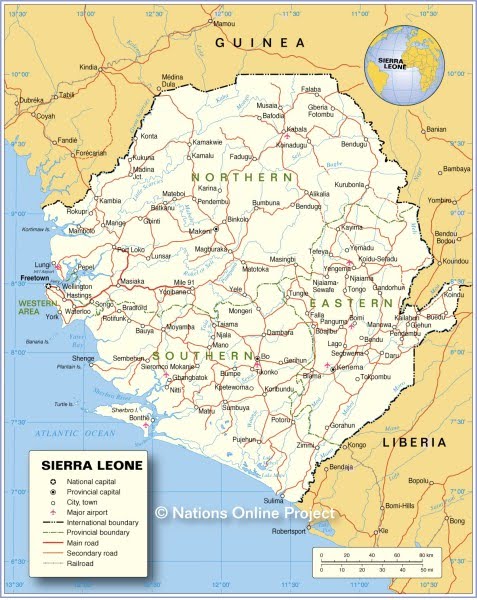Human Rights Day 10 December 2009
Focus on Africa, a BBC World Service programme, keeps us in touch with the situation in the neighbouring countries, such as Guinea, but also other African countries. The programme is broadcasted at regular intervals throughout the day, and having turned on the radio, just after 7pm on Human Rights Day, we heard that Female Genital Mutilation (FGM) had been declared unlawful in Uganda, and that anyone found practising it, would be imprisoned for 10 years, and if a person dies as a result of the act, then it is life imprisonment for the practitioner. FGM is seen as a violent, inhumane act practised on young girls, and therefore is a violation of human rights.
The World Health Organisation estimates that 130 million girls and women in Africa alone suffer the physical and psychological effects of some form of FGM. It is estimated that 2 million girls are circumcised every year, equivalent to 6,000 genital mutilations per day and 250 mutilations per hour.
There are various campaigning groups, both inside the countries where FGM is practised and also elsewhere. For those of us who come from countries where such a practice has never been part of our traditions, it is hard to understand how such violence can be inflicted on young girls.
FGM is practised in Sierra Leone, and it is estimated that 94% of females have gone through this initiation ceremony and become part of the “Bondo Society”. There are a number of reasons given for the important of the practice – that it is a social event, bringing women and girls together, that it ensures that young girls are marriageable and therefore it has financial implications if you have daughters. It is also argued necessary to reduce sexual arousal and therefore limits promiscuity, and is even deemed to give more pleasure to men during intercourse.
The marriage of one’s daughter is an economic affair, and therefore fathers will want to negotiate the agreement being made between two families for a good “dowry”. The status of a father in society will be dependent on such issues and therefore a non-circumcised young woman will bring disgrace to a father. Men are therefore socially indoctrinated into believing that their bride needs to be mutilated in order to protect her virginity and honour.
The Bondo Society is said to be a cohesive force within a community, and after the war, a return to its practices indicated restored, social stability and the continued maintenance of tradition. Family heads save a whole year proceeds from farming activities to spend lavishly on ‘Bondo' ceremonies.
It is difficult to stop FGM from being practised when it continues to remain popular with many of the women in Sierra Leone, and men too, and is seen as a vote winner at elections time. Candidates for the Nation’s Parliament have been known to condone FGM as they go around campaigning prior to elections, and gain votes as a result.
The front page of Premier News, 9 December edition had the headline PAY ME MY MONEY? A 17- year old girl had been forcibly initiated into the Bondo Society during the process of childbirth, resulting in both physical and psychological pain. Who gave the orders for the procedure to be carried out is under question, and the nurse responsible delivered the baby, and performed the initiation on credit, hence the headline. A local human rights group and Amnesty International condemned the act.
The Ministry of Gender, Social Welfare and Children's Affairs has drafted a bill aimed at protecting children's welfare. Knowing that the banning of FGM will not bring votes, there may be little incentive to pass the bill, even though lip service is paid in certain social settings condemning the practice.
Worldwide attention that has been paid to the issue has increased gradually over the last 30 years so that it now appears on the agenda of many UN agencies. FGM is considered as a health issue, a torture issue, a children’s issue, a women’s issue, an economic issue. It is a faith issue too, if one considers that all religions affirm the Golden Rule “Do to others as you would have others do to you.”
For local anti-FGM campaigners, life is very difficult. Speaking publically about the practice is considered a taboo, and therefore other means have to be devised to educate girls about the practice, eg. training girls in income generating skills, such as sewing, and hairdressing and in the process talk about avoidance of having their bodies abused. Alternative positive rituals for social cohesion would need to be devised to fill the vacuum that the removal of the practice would leave. An overnight decision to ban it would force it undercover, but sensitive collaboration of representatives from the whole community, looking at the practice from many different perspectives, might bring about new ways of being for countless girls and women around the world.
12 December 2009
Saturday, December 12, 2009
Subscribe to:
Post Comments (Atom)

No comments:
Post a Comment